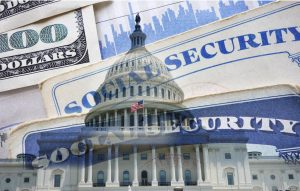© Reuters. FILE PHOTO: UAW President Shawn Fain chairs the 2023 Special Elections Collective Bargaining Convention in Detroit, Michigan, U.S. March 27, 2023. REUTERS/Rebecca Cook/File Photo
By Joseph White
DETROIT (Reuters) -United Auto Workers President Shawn Fain told Reuters the Detroit Three automakers are “still not serious” in their responses so far to the union’s economic proposals, and said Sept. 14 is a firm deadline for all three companies to conclude new contracts.
“Things have been moving slow,” Fain said in an interview. He did not rule out strikes at General Motors (NYSE:), Ford and Stellantis North America if the deadline is missed.
“Everyone’s deadline is the same,” Fain said. “It’s imperative all three companies come to the table.”
Fain has outlined an ambitious set of goals, including ending the current tiered wage system that pays new hires less than veterans, reinstating cost-of-living adjustments, or COLA, and restoring defined-benefit pension plans that the automakers ended years ago for new hires.
The UAW president has rattled automakers with combative rhetoric, delivered via Facebook (NASDAQ:) Live videos, including one where he threw contract proposals from Stellantis into a trash can.
With less than a month to reach new contracts, concerns about the impact of a walkout by UAW members at one or all of the Detroit Three are growing.
While the Detroit Three represent only a portion of the total U.S. auto industry, their workers are concentrated in Michigan – a pivotal 2024 election state. U.S. President Joe Biden on Monday urged the automakers and the union to come to a “fair agreement.”
The UAW has not endorsed Biden’s re-election, and Fain said he still is not ready to do so.
Biden’s statement “was a good step, but we still have a ways to go in this,” Fain said. “We’re in a real fight with the Big Three. We have to know who our friends are. Our endorsements are going to be earned.”
Fain elaborated on the UAW’s proposal to expand defined-benefit pension plans for all union workers. The three automakers have signaled such a move would add billions in liabilities and make their unionized U.S. operations uncompetitive.
Fain said the union’s analysis concluded that the automakers could fund defined-benefit plans for roughly the same cost as current 401(k) savings plans.
“The numbers are extremely close,” Fain said.
The more than 143,000 UAW members at the Detroit Three are voting this week and next to authorize Fain to call a strike at any of the companies if deals are not reached by the deadline.
While strike authorization votes are a normal feature of bargaining in the U.S. auto sector and other industries, the tension surrounding this year’s contract talks in Detroit is not.
The Anderson Economic Group, based in East Lansing, Michigan, on Thursday released an estimate that a ten-day UAW strike that shuts down the Detroit Three automakers could cost the manufacturers, workers, suppliers and dealers more than $5 billion.
Of the $5 billion in total losses, $859 million would be wages lost by striking workers, Anderson’s study estimated.
Walkouts at the Detroit Three could benefit Tesla (NASDAQ:) and other non-union automakers including Toyota Motor (NYSE:), Honda Motor, Nissan (OTC:) Motor and Hyundai Motor, Anderson said.
Read the full article here









